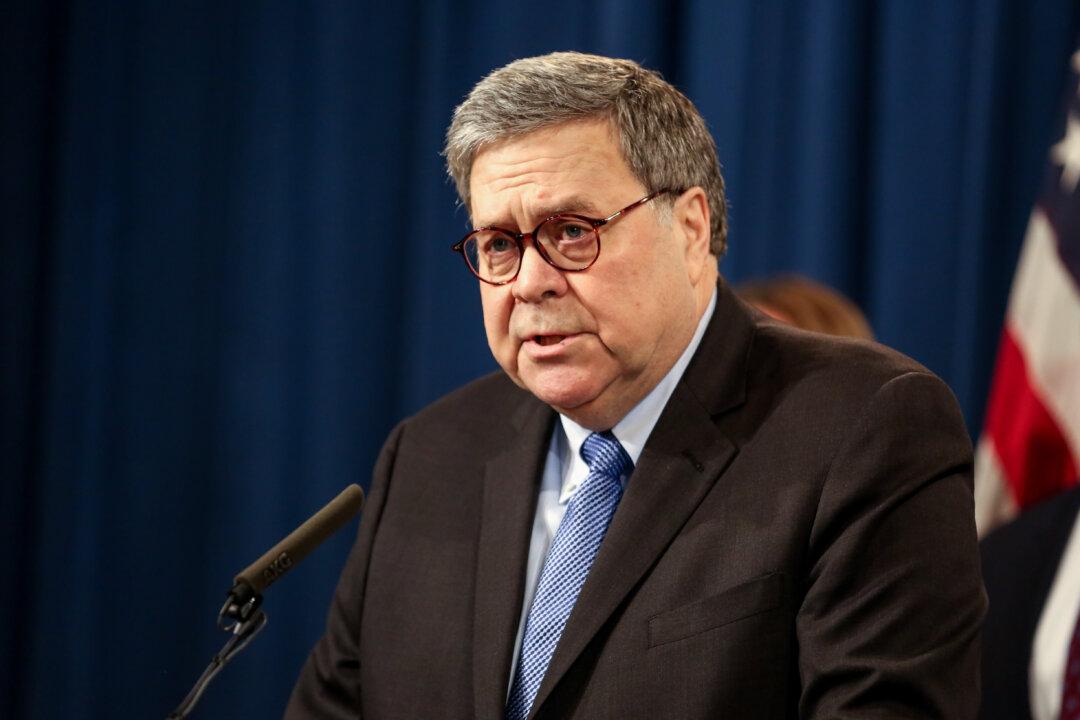The Chinese regime is a bigger threat to the U.S. election process than Russia, Attorney General William Barr said April 8.
The statement comes as the regime is under intense scrutiny from the United States for its economic espionage efforts, intellectual property theft, and more recently, its lack of transparency, leading to the worldwide spread of the CCP virus.




